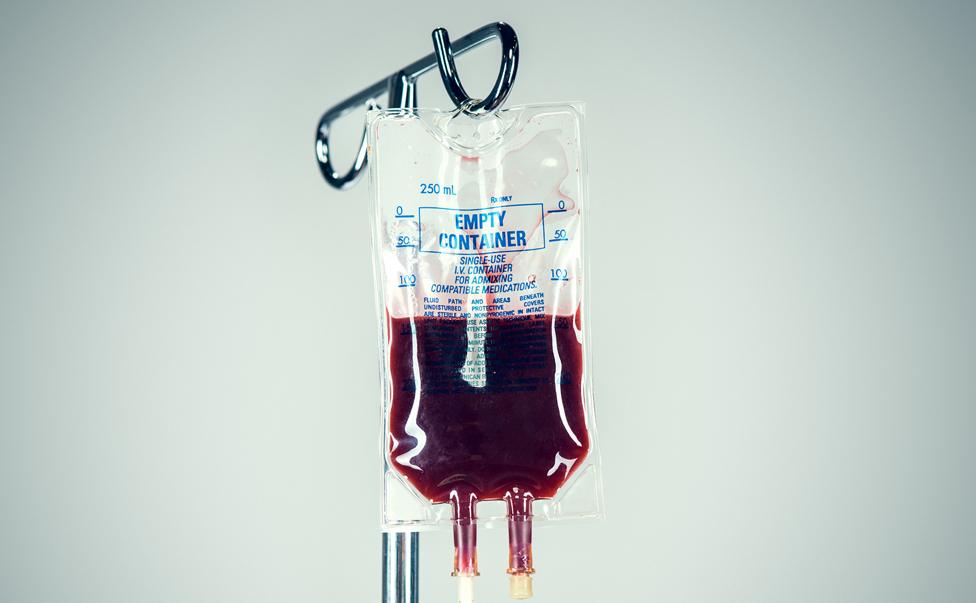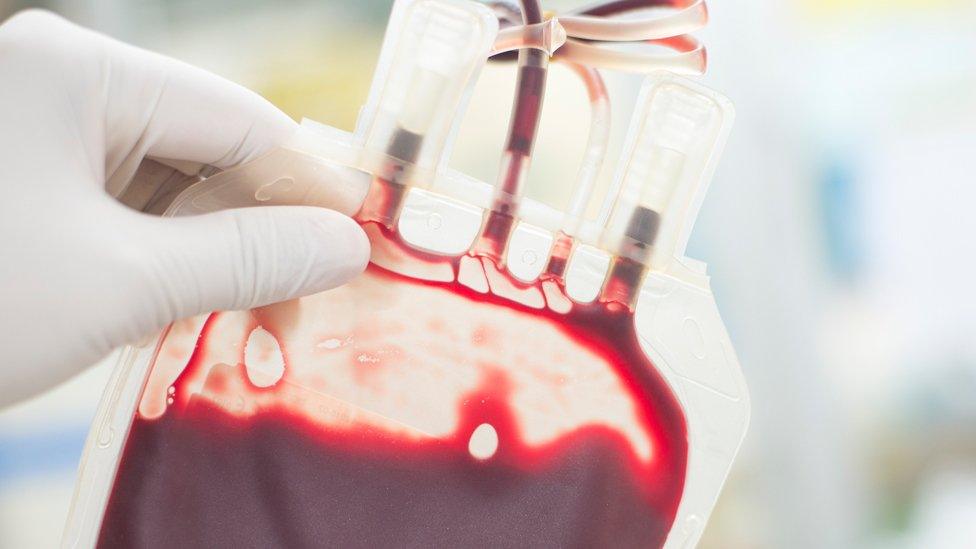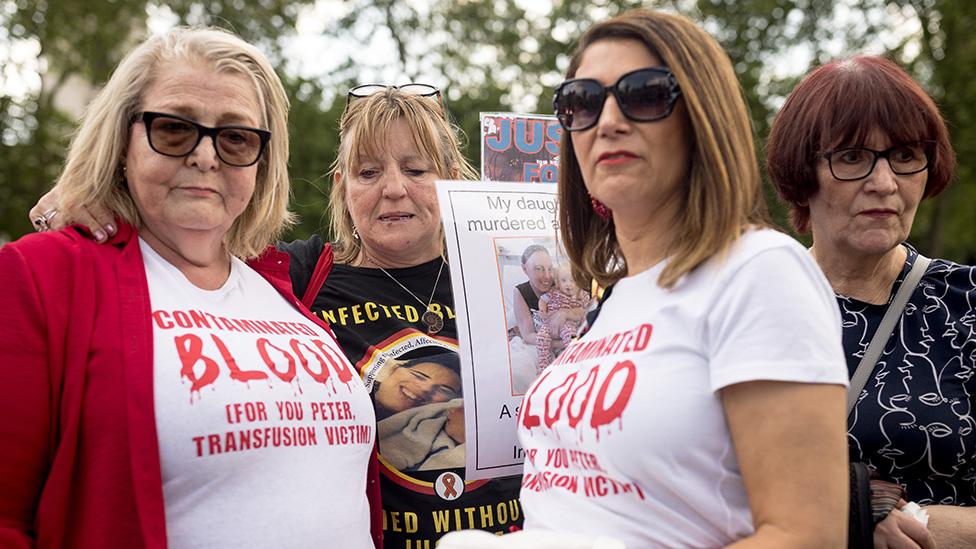Contaminated blood inquiry: At least 300 victims in Wales
- Published
Infected blood was "another death sentence"
Some of the hundreds of Welsh victims of the contaminated blood scandal are set to give evidence to a UK-wide public inquiry.
The judge-led investigation will meet in Cardiff for four days from Tuesday.
Sir Brian Langstaff will hear from 15 witnesses, but also examine many more written submissions.
Patients contracted HIV or hepatitis from contaminated blood products in the 1970s and 80s, leading to about 2,400 deaths across the UK.
The scandal has been labelled the worst treatment disaster in the history of the NHS.
Haemophilia Wales called it a "huge tragedy" and a cover-up which has led to anger and mistrust.
At least 300 people in Wales are known to have been infected, but this does not include others who have died or may not have known they were infected.

Haemophilia Wales says the bigger scandal is "the way the patients and their families were treated"
'It was another death sentence'
Toni Olszewski, 66, was a steelworker in Port Talbot who needed blood transfusions and multiple operations after surviving an horrific crash with a train in 1986 while riding home on his motorbike.
His injuries were life-changing enough, but 12 years later he found out the blood he received was contaminated and he had the liver disease hepatitis C.
"I was in Neath and went to give a pint of blood but they asked me if I'd had any operations - then three days later the blood bank in Cardiff contacted me and came to my house and told me.
"I didn't know what it was and they explained it to me - I was devastated. Who's responsible for this? I'd had enough getting back after the accident.
"It was another death sentence, like having a time bomb waiting to go off."
He has recently been cured - and told it would not come back - even though earlier this year he went through the trauma of being given a positive test by mistake.
"But look at others who have died needlessly. They should have checked it first."
As well those receiving contaminated blood through transfusions, many victims are people with haemophilia who received a clotting agent Factor VIII as part of their treatment.
Although much of this was imported from the United States, it was also produced in the UK and ended up with thousands of donations being pooled together, including those from infected and unscreened sources.
It was May 1983 when the first case of Aids in a UK haemophiliac emerged - a 23-year-old Cardiff patient given Factor VIII.
A second Bristol man died. They were among the first 20 Aids cases reported in the UK that summer.
Lynne Kelly, chairwoman of Haemophilia Wales, said this meant the scandal has particular resonance in Wales.
She said no-one was told about the risks and families need both justice and compensation.
"Factor VIII was seen as a new magic wonder-drug - for severe haemophiliacs it was a life-changing treatment.
"We believe commercial interests took precedence over patient safety. We feel people were let down and given treatment which was unsafe."
Ms Kelly said the inquiry, led by Sir Brian, a former high court judge and lead barrister in the Bristol Royal Infirmary baby inquiry, external, was a landmark moment in a 35-year struggle.
"We hope the inquiry will make the recommendations to help those families and we get truth and justice."
- Published23 July 2019

- Published30 April 2019
